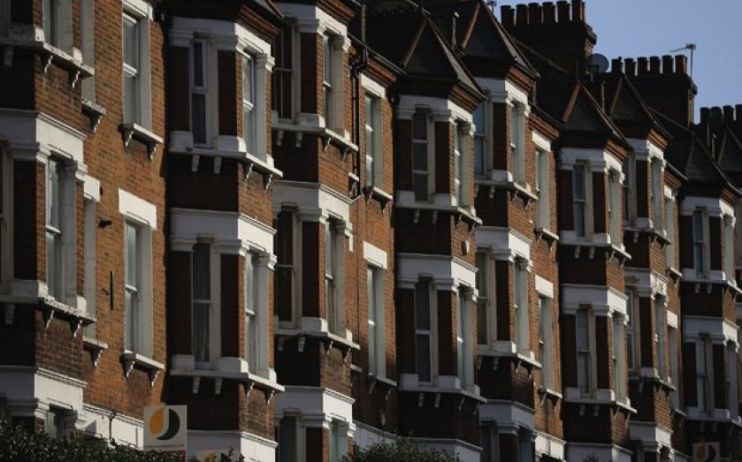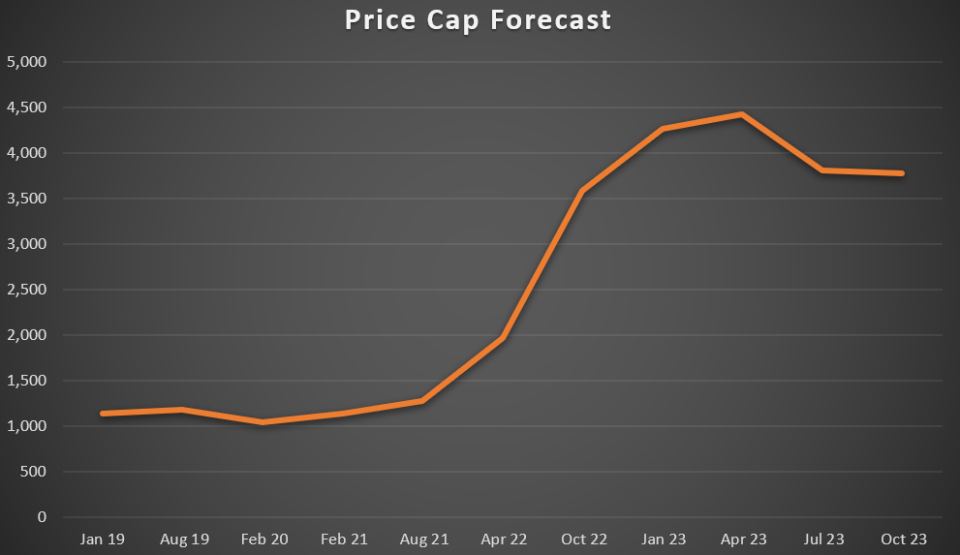Scottish Power urges Government to bring in price cap freeze as winter crisis looms

Calls for energy bills to be frozen ahead of winter have gathered steam after the boss of Scottish Power proposed that the energy price cap should be held for the next two years.
In a meeting at Downing Street this week, he proposed that suppliers could cover the gap between the current rate and wholesale prices through borrowing from a “deficit fund” supported by commercial banks, according to The Sunday Times.
These sums would be repaid over the next ten to 15 years. which would be passed on to consumers via their energy bills over this period or shifted onto general taxation.
He argued this would ease the pressure on millions of Brits amid a deepening cost of living crisis.
He made the proposals to Chancellor Nadhim Zahawi, Business Secretary Kwasi Kwarteng and departing Prime Minister Boris Johnson, who assembled the energy sector together on Wednesday to brainstorm ways to ease energy bills for consumers.
Anderson previously mooted the idea in April, but it was rejected by then Chancellor Rishi Sunak, who instead opted for a £15bn intervention focused primarily on direct payments to households.
Meanwhile, Labour leader Keir Starmer is set to call for a ban on energy price rises this winter, according to The Observer, and will unveil his own proposals tomorrow.
This follows former Labour Prime Minister Gordon Brown suggesting that nationalisation should be put on the table to curb household energy bills.
He also wants the upcoming price cap hike – which will be announced on August 26 – to be cancelled, and for energy firms to be offered loans and grants to cover the wholesale costs.
These historic proposals to intervene in the energy sector come amid an anticipated rise in energy bills to at least £3,500 per year this October, with a peak as high as £5,000 per year next Spring.
Tory leadership frontrunner Liz Truss has focused on removing the upcoming hike to national insurance and a moratorium on green levies to ease household costs – however, she has not ruled out further support packages this winter.
She could also strip the planned £400 energy bills discount from “high earners”, as first reported in The Telegraph.
While Truss is developing her own plans, the Treasury is proposing an extra £400 discount for households this winter.

Nadhim Zahawi, the current Chancellor, has asked officials in the exchequer to work on a multibillion-pound package which would lead to a reduction in the energy price cap from January, according to The Sunay Times.
The package would alter how Ofgem determines the level at which the cap should be set by removing an allowance that suppliers can charge consumers.
This cost would instead be paid for through financing facilitated by the Treasury and Bank of England.
Treasury estimates, handed to Zahawi and other ministers this week, suggest the new proposals would reduce the price cap by at £400.
The scheme would not be implemented fast enough to have an effect on the next cap rise, which will come into effect in October.
However, it could ease costs this winter with later price cap updates, and would be ready for an announcement when either leadership contender, Truss or Sunak, is made Prime Minister on 5 September.
The energy sector is also looking to come up with its own solutions.
Suppliers including British Gas, EON UK and Octopus Energy have called on the UK government to shift a wide range of charges from customer bills into general taxation, according to The Financial Times, as they face growing pressure to lower soaring costs for households.
These suppliers have argued that the quickest way to reduce the hit to households would be to strip out many charges unrelated to the rising price of wholesale gas.
Wholesale gas and electricity costs account for around 57 per cent of the average dual-fuel annual bill – set at £1,971 under the price cap, or around £1,077.
The rest — almost £900 — is made up of transmission costs, the standing charge and a raft of other fees.